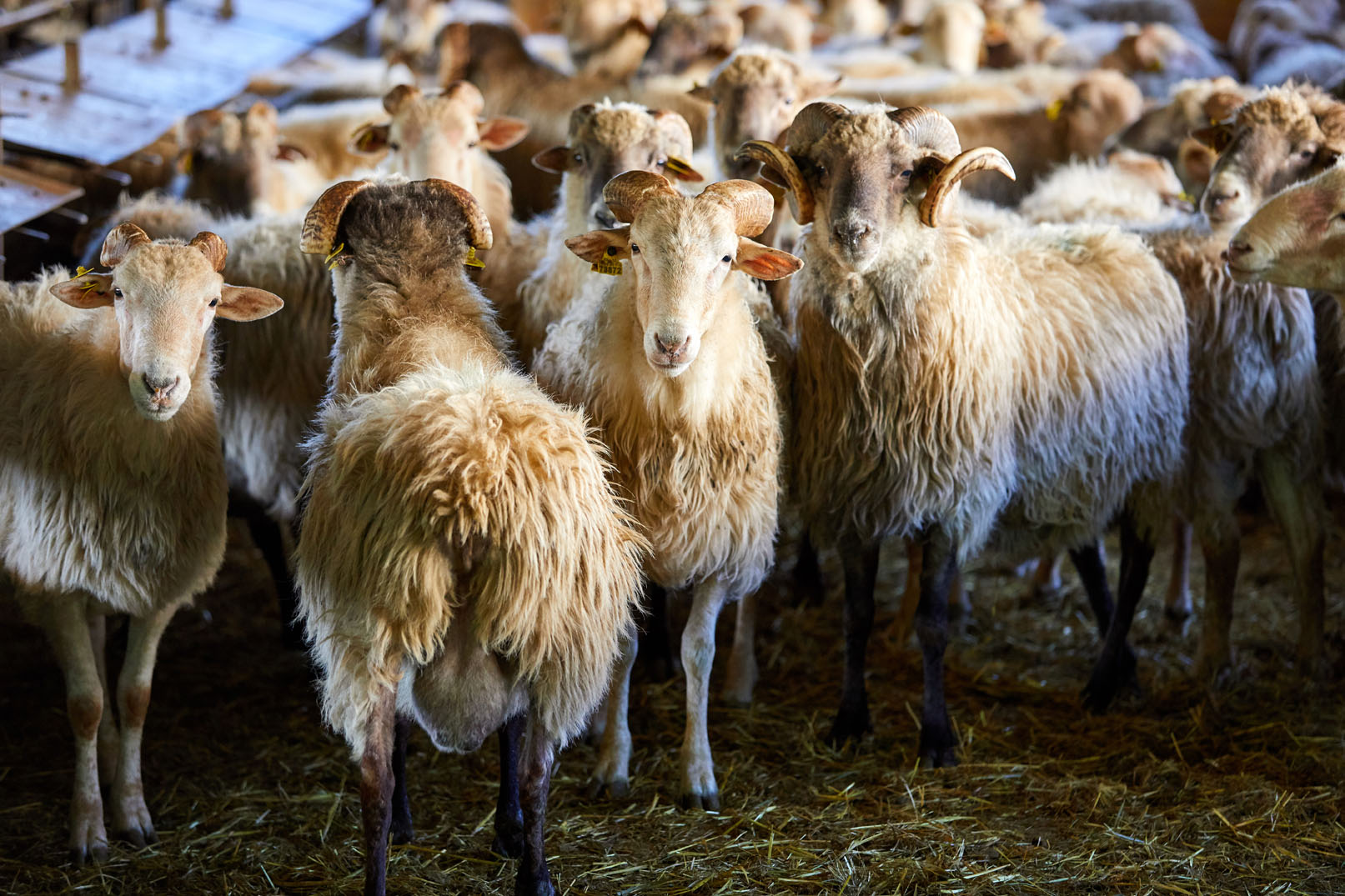NEW
Practices to promote more sustainable sheep farming
17 April 2024
- NEIKER technology centre is hosting this week the seventh coordination meeting of the European LIFE GREEN SHEEP project at its facilities in Arkaute (Álava)
- The main objective of the initiative is to reduce greenhouse gas emissions in sheep flocks and implement practices to improve their sustainability
Like all other human activities, sheep farming for milk and meat production also has a certain impact on global warming, among other reasons, because of the fermentations that occur in their digestive system during the digestion of the fodder they consume. But this livestock activity often also generates a multitude of positive impacts on the environment (fire prevention, promotion of biodiversity, etc.). It is therefore essential to develop methods that reduce these emissions and promote sustainability (environmental, economic and social) in the primary sector.
To address this problem, NEIKER will be hosting the seventh coordination meeting of the European LIFE GREEN SHEEP project today and tomorrow at its facilities in Arkaute (Álava). During the event, the progress made so far in the initiative, which is focused on assessing the carbon footprint and promoting practices that improve sustainability in sheep production in Spain, France, Ireland, Italy and Romania, will be shared.
This conference will bring together experts from the sector from several European countries, as well as sector agents such as the Interprofesional Sheep and Goat Meat Association (INTEROVIC) and Idiazabal Designation of Origin.
Flock analysis
The event will start on Wednesday 17 April with the presentation of the results of a comparative analysis of various greenhouse gas (GHG) emission assessment tools used in sheep production.
During this session, the results obtained by the tools CAP2’ER from France, SheepLCA from Ireland, CarbonSheep from Italy and ARDICARBON from Spain will be discussed and the conclusions of this analysis will be presented, highlighting the distinctive features of each tool and their effectiveness in measuring GHG emissions in flocks.
“This study aims to review, compare and harmonise the methodologies used to assess both greenhouse gas emissions and other key aspects of sustainability in sheep production, such as waste management”, explains Roberto Ruiz, head of NEIKER’s Animal Production department.
In addition to the comparison of tools, the results obtained from the evaluation of the carbon footprint of flocks from the five countries involved in the project will be presented. “These data will allow us to identify areas for improvement and develop effective strategies to reduce greenhouse gas emissions and promote more sustainable practices in sheep farming at European level,” says the researcher, who coordinates the project at national level.
The methodology used and the results obtained in a common sustainability assessment applied to the participating flocks will also be presented. This analysis covers key aspects such as the efficient use of resources, environmental management and animal welfare.
The event will conclude tomorrow, Thursday 18 April, with a visit to a flock of Latxa sheep in Gipuzkoa, as well as to NEIKER’s own flock in Arkaute. Both flocks are characterised by their innovative approach to implementing sustainable practices and advanced technologies to reduce greenhouse gas emissions and promote sustainability in sheep farming.
About LIFE GREEN SHEEP
The European LIFE GREEN SHEEP project started in 2020 with the aim of boosting sustainability in sheep production through the reduction of greenhouse gas emissions and the implementation of more environmentally friendly practices.
The project is led by IDELE and brings together R&D&I teams and sheep sector organisations from five European countries: Spain, France, Ireland, Italy and Romania, which together account for 47% of European sheep meat production and 63% of sheep milk. At national level, it is coordinated by NEIKER, with the participation of ITACYL (Castilla-León), Oviaragón (Aragón) and Lurgintza (Euskadi).
The main objective of the initiative is to evaluate and compare the carbon footprint of a large sample of sheep flocks in these countries. The aim is to reduce the carbon footprint associated with sheep milk and meat production by 12%, while maintaining the economic, environmental and social viability of the flocks.



